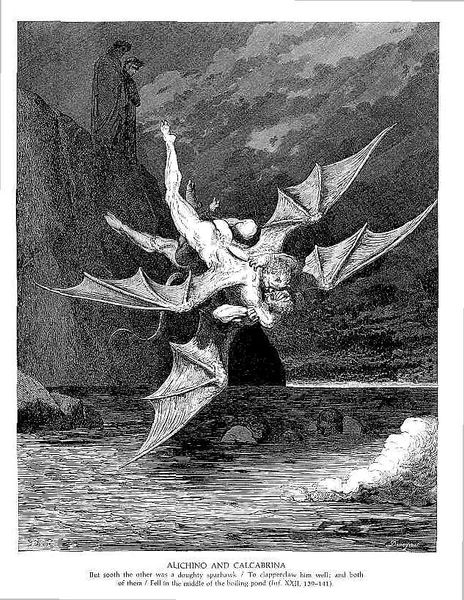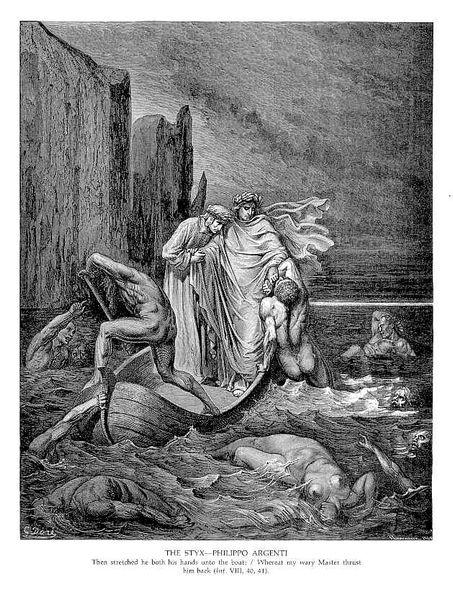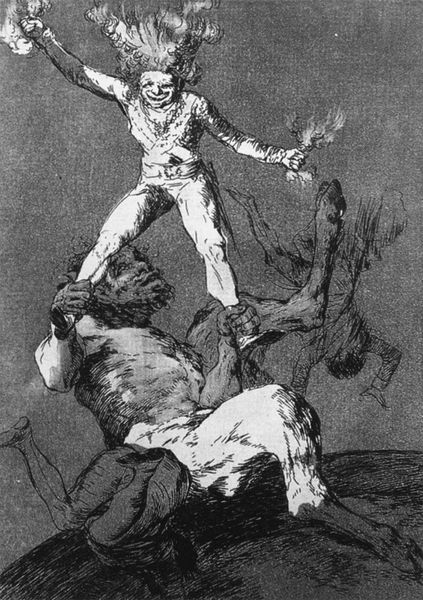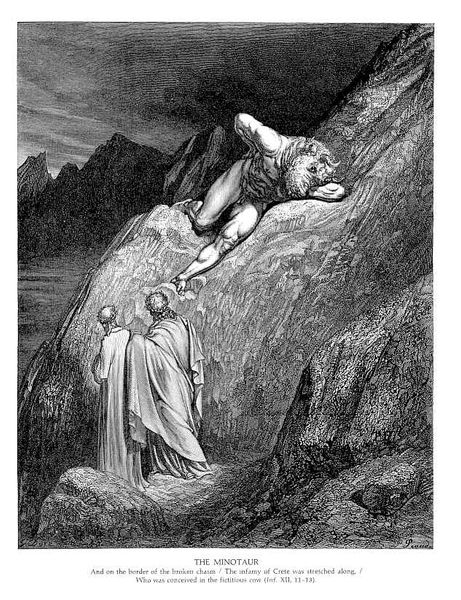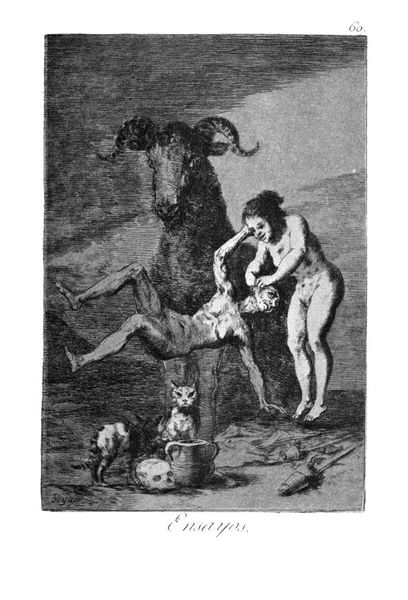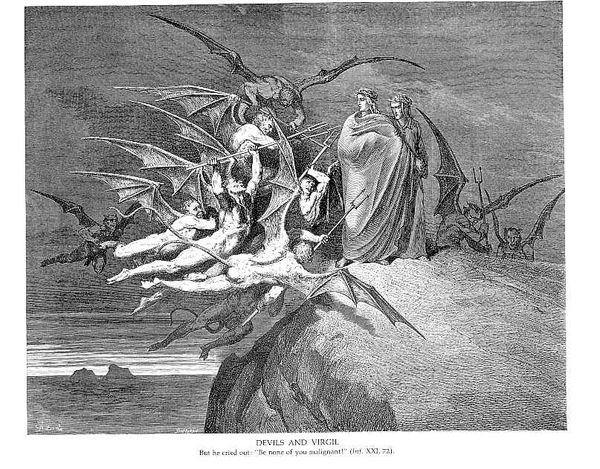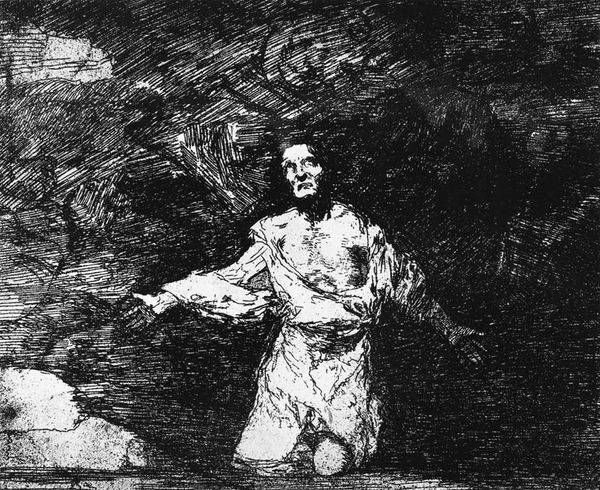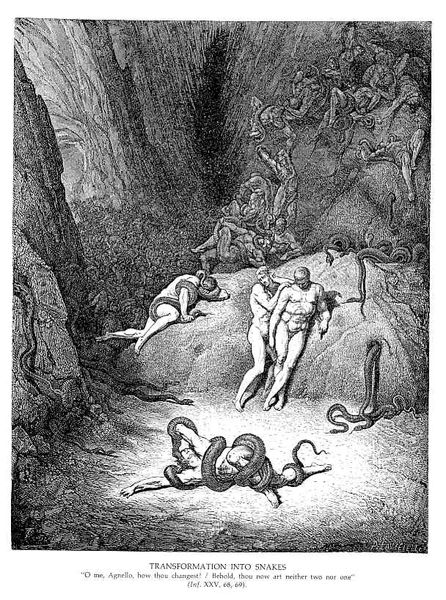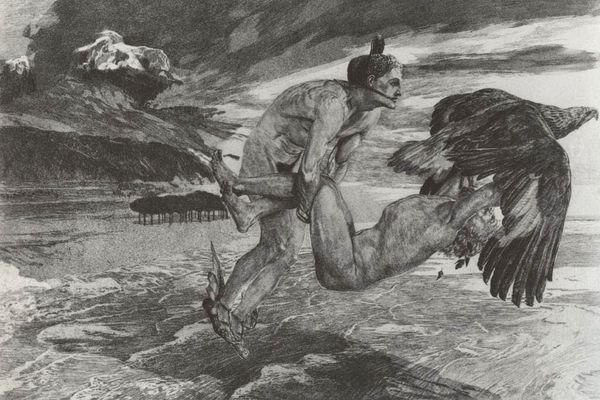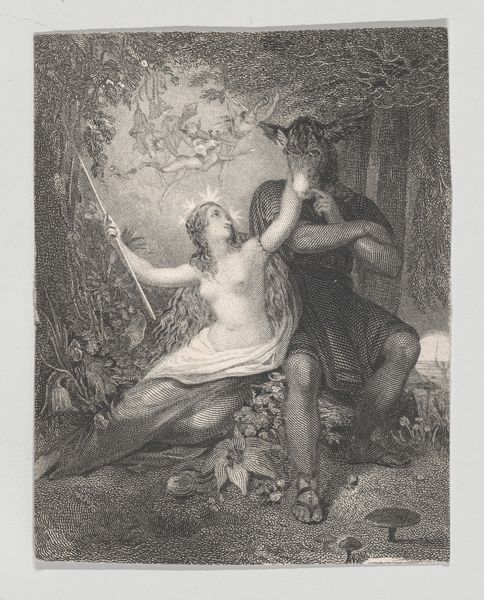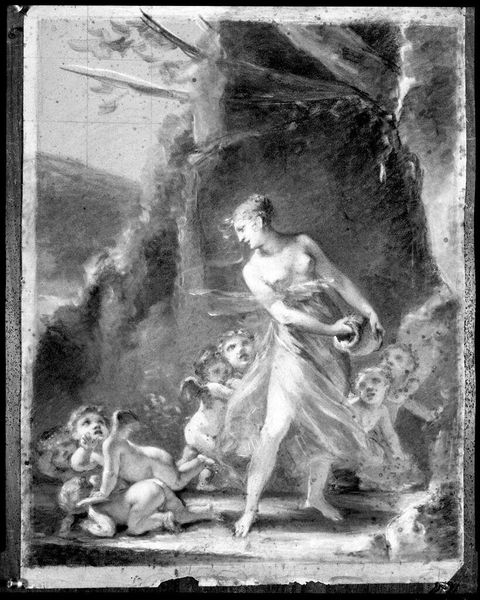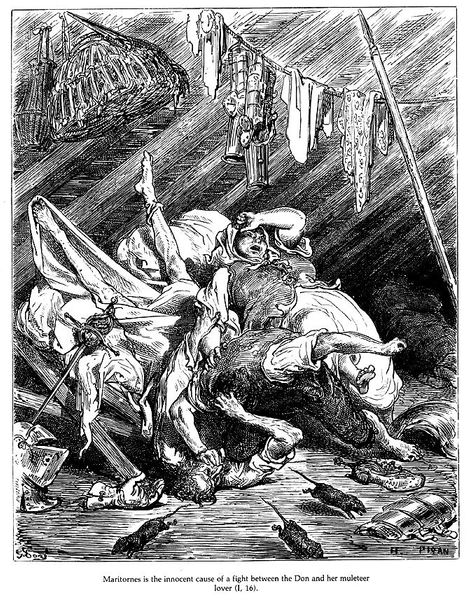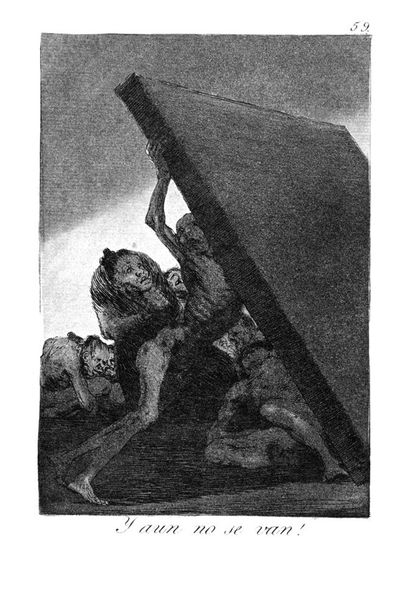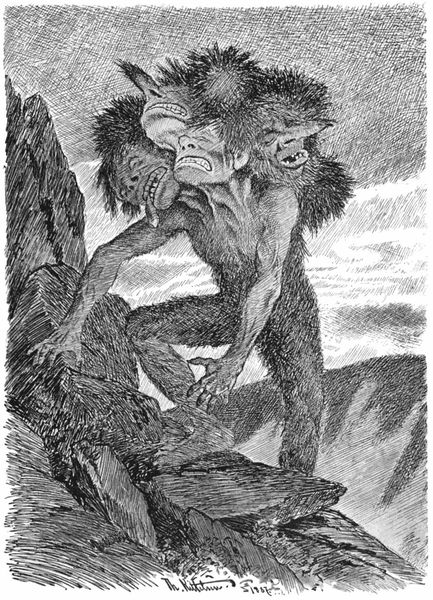
print, etching
#
allegories
#
allegory
#
narrative-art
# print
#
etching
#
figuration
#
romanticism
#
history-painting
Dimensions: 21.4 x 15 cm
Copyright: Public domain
Editor: This is Francisco Goya’s "Pretty Teacher," an etching from 1799. It depicts two nude figures, an elderly man and a woman, riding what looks like a broomstick. It feels quite unsettling; the stark contrast between the figures creates a disturbing visual. What strikes you most about this piece? Curator: Indeed. Formally, Goya presents us with a potent juxtaposition. Note the dynamic imbalance—the elderly man, marked by age and almost grotesque features, counterpoised with the relative smoothness and vitality of the female figure. The rough, almost frantic etching lines contribute to the unease, wouldn’t you agree? Editor: Absolutely, the lines enhance the chaos. But the owl in the top corner—is that symbolic, and does it speak to any structure within the image? Curator: Consider the semiotic weight: the owl, a creature of the night, oversees this odd couple, acting as a silent judge. Structurally, it balances the composition, drawing the eye upwards and containing the whirlwind below. But consider, too, the absence of traditional romantic allegory. Goya inverts conventional beauty standards to disturb and challenge the viewer. Editor: That's a strong observation. The piece is less about beauty and more about the grotesque reality underneath, communicated via harsh lines and unusual shapes. Curator: Precisely. It transcends mere representation, doesn't it? Through manipulation of form, Goya critiques societal facades, laying bare the unnerving contrasts within human experience. Editor: This breakdown helps reveal its core. It's not just a depiction; it’s a statement. Thank you. Curator: It's been a pleasure; examining the artwork has opened avenues to observe the core construction of an artistic piece.
Comments
No comments
Be the first to comment and join the conversation on the ultimate creative platform.
